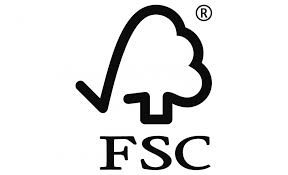Most supermarket products are covered in little symbols, brands, ticks and crosses. They can mean something is Australian-made, Heart Foundation-certified, “against animal testing” or “cruelty-free”. Source: WA Today
“Lots – even most – products we buy at the supermarket, such as paper towels or plates, have the certification. Most books you get in bookstores have it.
“The logo is on condoms, tyres, charcoal, honey, nuts, even seeds that come from forests,” Forest Stewardship Council Australia chief executive Adam Beaumont said.
The tree tick is the mark of the FSC, the global certification council that has operated for 30 years to show people forest products made without compromising the earth for future generations.
Across 112 countries, 30,000 different companies make 25,000 different products carrying this logo.
The way it works is the FSC sets a sustainability standard and employs independent auditors to assess forest managers – in Australia, generally state governments – to award the logo to those that comply.
Plantation timbers such as structural pine are easily certified and available at your local hardware store. But WA consumers just use that stuff for the house frame.
For our art, furniture, floorboards, cabinetry and panelling – we can’t get enough of that sweet, top-grade jarrah, karri, blackbutt and Tassie oak. Apart from the products of a small handful of boutique producers, virtually none of those woods grown in WA – or the rest of Australia, for that matter – are FSC certified.
The desirable status of these products has not only failed to protect them but has actually contributed to the gradual weakening of the forests themselves, not to mention the species and communities they support. But the good news is, you can vote with your feet.
In WA, the state’s Forest Products Commission manages state forest logging practices, right now not well enough to get the FSC certification. No Australian government is, but WA is doing better than most.
A recent assessment by FSC auditors found WA at least has retained the standard of “controlled wood” it got one year ago. This means WA native forests have avoided what the FSC considers the most harmful practices.
They are not logged illegally, in violation of traditional and civil rights or razed and replaced with plantations or genetically modified trees.
FPC general manager Vince Erasmus said the organisation aimed “to ultimately achieve” full FSC certification, but couldn’t estimate how soon that could be.
“At this stage FPC is still undertaking an initial analysis to understand what gaps would need addressing in our current management system to meet requirements of the standard,” he said.
“The FPC adopts a continuous improvement approach to its activities, and will be addressing the recommendations from the [June 2015 karri forest operations] audit on this basis.
“In particular, FPC is currently undertaking fauna monitoring in karri forest and is looking to improve our current approach.”
Mr Beaumont said fully certified timber came from forests where high conservation values were protected; communities, including indigenous communities, were allowed to be involved in forest management; methods of harvesting and environmental management meant the forest was healthy and able to grow back; and workers were kept safe and had their rights protected.
He said some Australian states, including Tasmania and Victoria, were not far behind WA in their journey towards certification but others, including New South Wales, had not even embarked upon the process, largely because the local market was not demanding sustainable timber. But WA consumers were.
He said consumers had long sought sustainable paper products since awareness increased in the 1980s but the same awareness in terms of timber had developed only over a decade.
He said one in five people now looked for the logo when buying, and with 65% of the economy driven by household consumption, the rise of certified timber was inevitable.
“What we know is if you if you shift 20% of demand you can shift 50% of supply,” he said.
The FSC auditor identified eight findings in its WA report, including concerns about the definition of old growth forest in WA. The FSC has “strongly encouraged” the FPC to address the recommendations.
Mr Beaumont said at the moment Bunnings carried only FSC certified outdoor furniture, which was a big win, but he wanted shoppers to be able to walk into any store and know the products came from a responsible source.
“Until then, if you’re worried, look for the logo when you go shopping for your furniture, your floorboards and if you don’t see it, you can ask for it,” Mr Beaumont said.
“The only way to be certain you have exercised that social duty of care is to look for the logo.”






